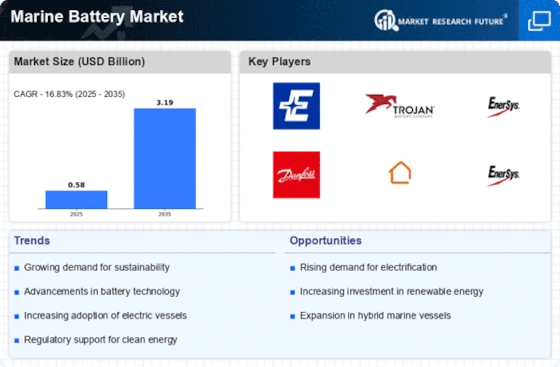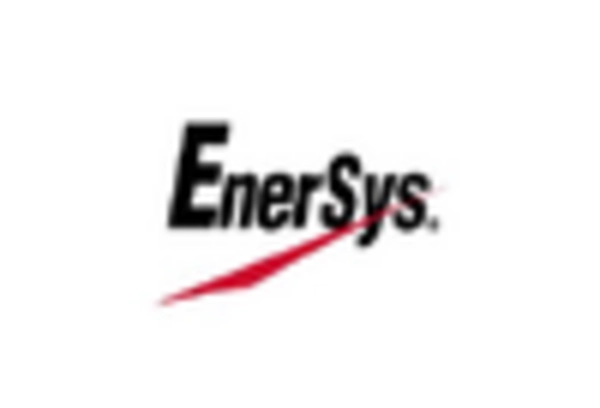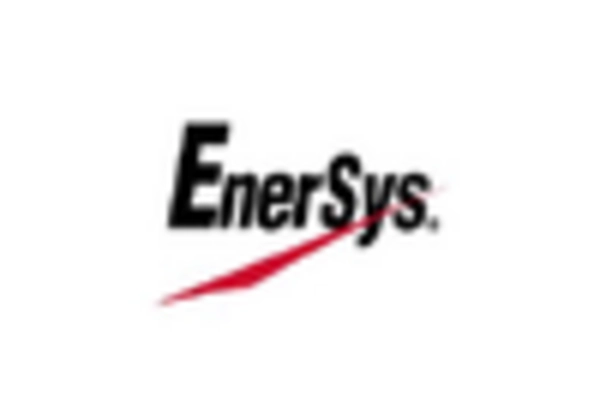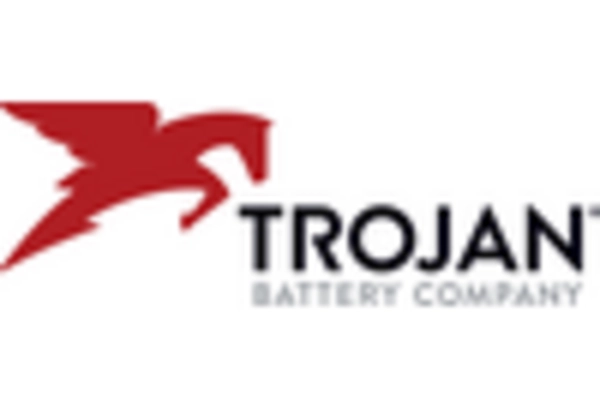Market Trends
Key Emerging Trends in the Marine Battery Market
The Marine Battery Market is witnessing several notable trends that are reshaping the maritime industry's approach towards energy storage and propulsion systems. A significant trend is the increasing focus on sustainable and cleaner energy solutions within the maritime sector. With growing environmental concerns and stricter regulations on emissions, there's a rapid shift towards electrification and hybridization of vessels. This shift fuels the demand for advanced marine batteries, driving innovation towards more efficient, durable, and eco-friendly battery solutions capable of powering electric and hybrid propulsion systems.
Additionally, there's a surge in the integration of renewable energy sources and energy storage systems onboard vessels. Renewable energy technologies such as solar panels and wind turbines are being incorporated into maritime applications. Marine batteries play a crucial role in storing and managing this renewable energy efficiently, facilitating smoother power management and reducing reliance on conventional fossil fuel-powered systems. The trend towards utilizing energy storage for effective power distribution reflects the industry's broader pursuit of sustainable and greener operations.
The market is also witnessing a notable evolution in battery technology itself. Advancements in battery chemistry, materials, and design are revolutionizing the capabilities of marine batteries. Lithium-ion and other advanced battery technologies are gaining prominence due to their higher energy density, longer lifespan, and enhanced performance compared to traditional lead-acid batteries. Research and development efforts are focused on improving safety features, increasing energy efficiency, and reducing charging times, driving the market towards more reliable and efficient marine battery solutions.
Furthermore, there's a growing demand for smart and connected battery systems in the maritime sector. The integration of battery management systems and intelligent features allows for real-time monitoring, diagnostics, and optimization of battery performance. Vessel operators seek batteries equipped with smart technology that enables remote monitoring, predictive maintenance, and efficient energy utilization, aligning with the industry's digitalization drive and the adoption of IoT solutions in maritime operations.
The recreational boating and leisure segment are also witnessing a shift towards electric propulsion systems, reflecting a consumer-driven trend. Boat owners and enthusiasts are increasingly interested in electric and hybrid boats due to their quieter operation, reduced environmental impact, and lower operational costs. This trend spurs the demand for marine batteries specifically designed for recreational applications, emphasizing the need for batteries with longer ranges, rapid charging capabilities, and compatibility across different boat sizes and types.
Moreover, sustainability is a driving force influencing the Marine Battery Market trends. There's a heightened emphasis on developing eco-friendly battery solutions with reduced environmental footprints. Manufacturers are investing in environmentally sustainable battery manufacturing processes, utilizing recyclable materials, and adopting greener production techniques. This trend aligns with the industry's commitment to reducing carbon emissions and promoting sustainability across maritime operations.
In summary, the market trends in the Marine Battery Market encompass the shift towards electrification and renewable energy, advancements in battery technology, smart and connected battery systems, the rise of electric propulsion in recreational boating, and the overarching focus on sustainability. These trends are steering the industry towards cleaner, more efficient, and technologically advanced battery solutions, shaping the future of energy storage and propulsion systems within the maritime sector.


















Leave a Comment